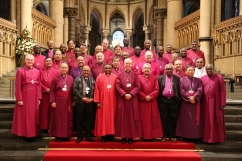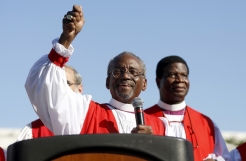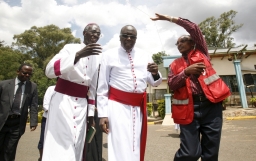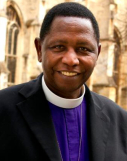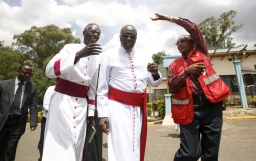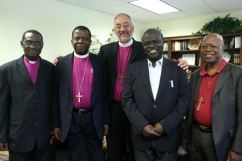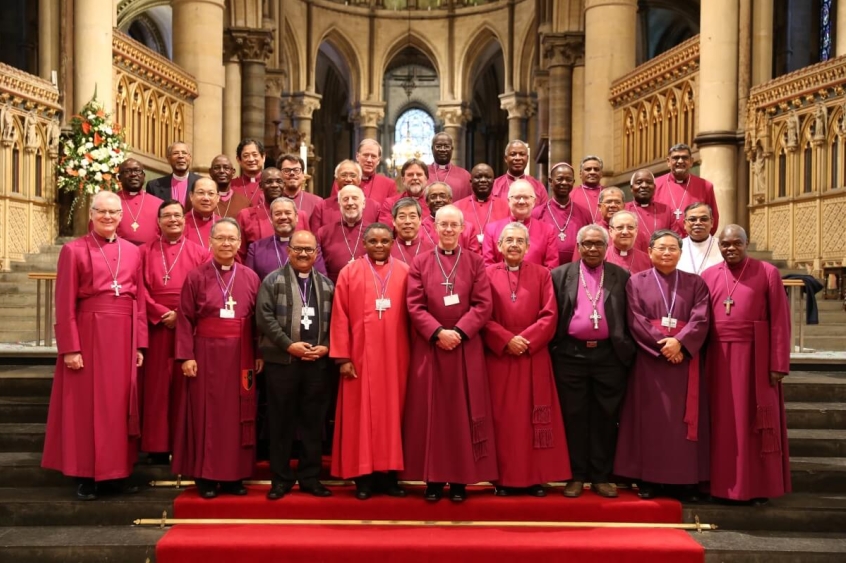
The decision to follow Christ is the most challenging, beautiful, costly and rewarding journey ever, according to a senior Archbishop in the worldwide Anglican Communion.
The Archbishop of South East Asia, the Most Rev Ng Moon Hing, describes the power of the biblical imperative, "follow me", in a report issued to members of the Anglican Consultative Council as they prepare to meet in Lusaka in Zambia next week.
He says that millions of Christians through two millennia "have accepted that simple invitation in faith and often with minimal understanding of the life-transforming decision they have taken."
The decision to follow Christ is "simply the most challenging, the most beautiful, the most costly, the most rewarding journey we could ever choose to begin," he writes.
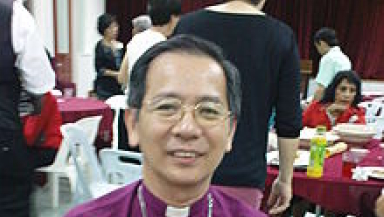
He also urges "reconciliation, wholeness, and life" in the report, Intentional Discipleship and Disciple-Making - An Anglican Guide for Christian Life and Formation.
This meeting of the Anglican Consultative Council is already likely to be tense because of the boycotts by Nigeria, Uganda and Kenya.
Church leaders in the conservative Global South are resisting what they see as the Western church's attempts to impose a gay liberal agenda.
They are boycotting the meeting because The Episcopal Church is attending, in spite of "consequences" imposed by the Primates meeting in Canterbury in January.
Archbishop Moon Hing admits the communion is "profoundly in need of reconciliation" in a world riven by fear, division, and brokenness. "A narrow, pietistic attachment to Jesus, whether individualistic or ecclesial, was never what God intended and will not serve us well today," he writes.
He says: "Some of us have even found ourselves as compromised as Judas, but the overwhelming impression I have of our Communion is that of a beautifully diverse family of women, men, and children who are deeply in love with Jesus and seeking daily to follow in his ways."
He also urges accepting the concept of inclusivity.
He says: "Exclusivity has no place in the family of God; all God-centred relationships are inclusive, and our evangelism has nothing to do with numbers and power but everything to do with love, generosity, inclusion, and the all-encompassing life and love of God."
The report recommends the communion's "five marks of mission" as a model for inclusive ministry.
It quotes Henry Venn, then head of the Church Mission Society, writing in the mid-19th century: "More than 100,000 coolies, chiefly from South India, are congregated in these plantations: from ten to twelve native catechists labour amongst them. The whole expense of these catechists is borne by the local funds. Those native catechists are to be under your training and superintendence, and through them chiefly you must strive to quicken the spiritual life of the Christian coolies, and to induce heathen coolies to enter the fold of Christ."
The document also addresses the question of exorcisms. In a passage highlighted in bold, it says: "While every Christian can and should engage in prayer for deliverance from evil, the Lord's Prayer being the most well-known prayer, not every Christian is called by God or by the Bishop to be an exorcist."
But it continues: "The ministry of deliverance and exorcism has not ceased to be part of the Lord's commission: it is an essential aspect of episcopal ministry within the life of the Church today."
Exorcisms are "a significant portal through which the Church can reach out and preach the Gospel into contemporary society,' it says.
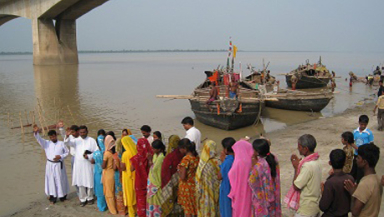
Reconciliation with God can never be complete "until we are at peace with ourselves," the document says.
Canon Chris Sugden of the conservative group Anglican Mainstream told Christian Today that he did not think the use of Venn's passage would cause offence. "We are all children of our time. They chose to go with the actual quote. It would not be right to change the quote. They could have used reported speech. But they may be making a point that it does no favours to anyone to try and rewrite the past."
A spokesman for the Anglican Communion office said: "This is a verbatim quote. It was used because of the message it conveys about teaching. Language changes with time. We cannot transport our values to earlier times and assume that Venn was being malevolent. But obviously, such a term would be completely unacceptable now."










